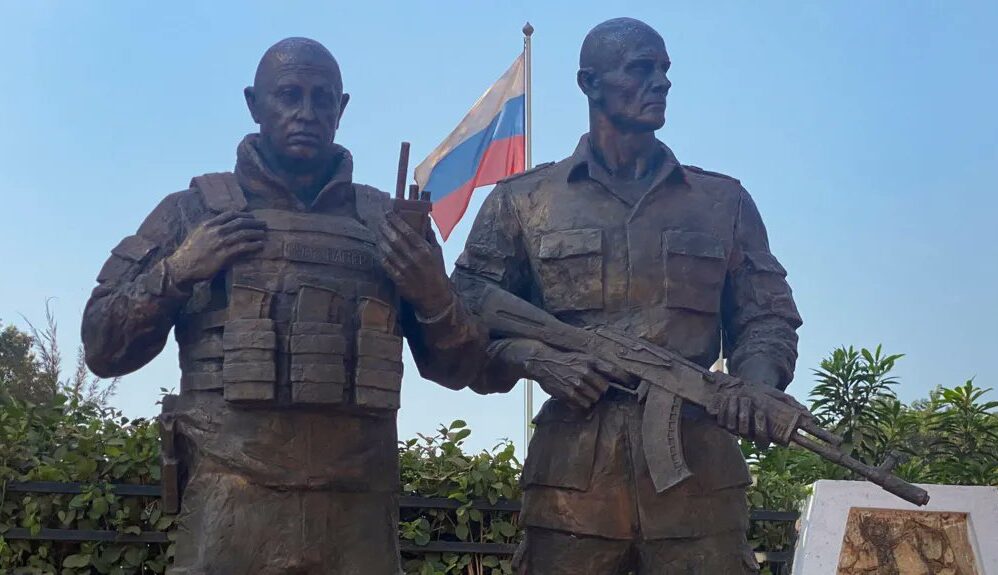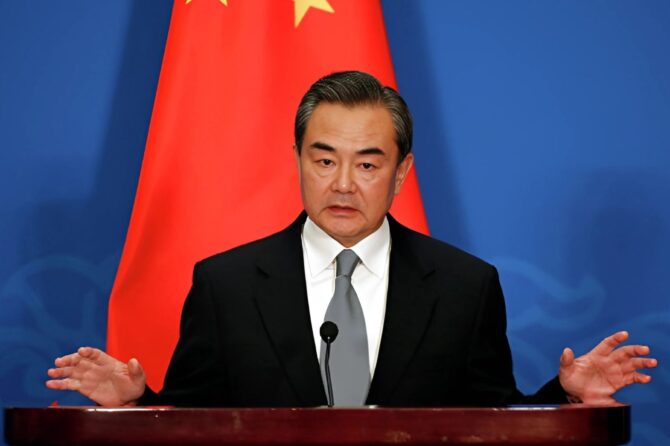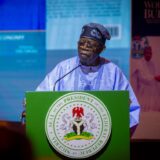A Mercenary Immortalised: Prigozhin’s Statue in Africa Reflects His Controversial Legacy
In a quiet corner of Bangui, the capital of the Central African Republic (CAR), a bronze monument was unveiled this week. It depicts Yevgeny Prigozhin, the late leader of Russia’s infamous Wagner Group, alongside Dmitry Utkin, his right-hand man. Prigozhin is shown in bulletproof attire holding a walkie-talkie, while Utkin clutches an AK-47 rifle—symbols of the duo’s paramilitary influence across global conflict zones.
For many in CAR, the statue is a tribute to a figure who brought military stability to their beleaguered nation. For others, it is a chilling reminder of the deepening ties between Russia and Africa, with implications far beyond Bangui.
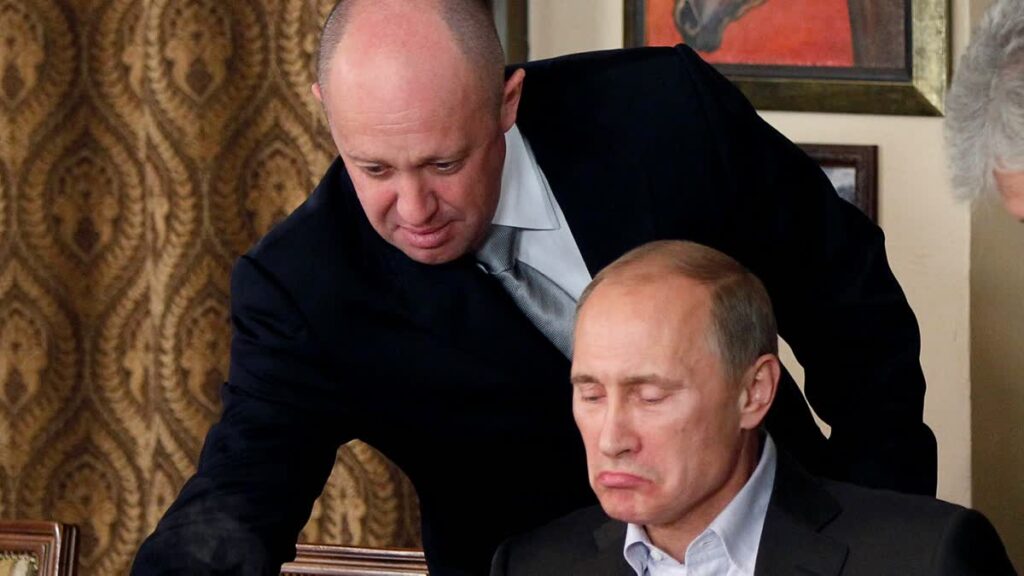
The Life of Yevgeny Prigozhin: From Convict to Mercenary Leader
Prigozhin’s journey was anything but ordinary. Born in Leningrad (modern-day St. Petersburg) in 1961, he lived a turbulent early life. Convicted of robbery and fraud in the 1980s, he spent nearly a decade in prison. Upon his release, Prigozhin capitalised on Russia’s chaotic post-Soviet economy, transforming himself into a successful businessman.
By the early 2000s, Prigozhin owned a string of restaurants in St. Petersburg, famously catering for Russian President Vladimir Putin and his inner circle. This earned him the moniker “Putin’s Chef.” But his business ambitions extended far beyond culinary ventures.
In 2014, Prigozhin founded the Wagner Group, a private military company that would go on to play a significant role in global geopolitics. Officially unacknowledged by the Kremlin, Wagner served as a deniable instrument of Russian foreign policy, operating in Syria, Ukraine, and across Africa.
Prigozhin’s Influence in Africa
Prigozhin’s interest in Africa was not merely military—it was strategic. Since 2018, Wagner mercenaries have been active in CAR, invited by President Faustin-Archange Touadéra to help suppress rebel uprisings. Wagner’s presence provided critical support to Touadéra’s government, allowing it to regain control over key territories.
In return, Wagner secured lucrative contracts for CAR’s natural resources, including logging and gold mining. Analysts argue that this arrangement exemplifies Prigozhin’s transactional approach to conflict zones: military intervention in exchange for economic gain.
Wagner’s activities were not limited to CAR. In Mali, the group replaced French forces, positioning itself as a preferred security partner for regimes seeking to push back against Western influence. In Sudan, Prigozhin’s networks reportedly facilitated arms deals in exchange for gold. This dual role—protector and profiteer—cemented Wagner’s reputation as both a saviour and an exploiter in Africa.
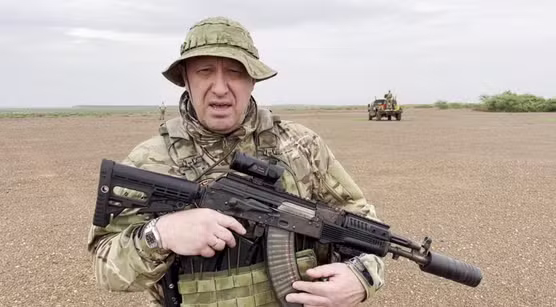
Human Rights Abuses and Controversies
While some in CAR view Prigozhin’s Wagner fighters as heroes, their presence has not been without controversy. Reports from the United Nations and human rights organisations have documented widespread abuses attributed to Wagner, including extrajudicial killings, torture, and forced disappearances.
These accusations led to sanctions against Wagner by the European Union, United Kingdom, and United States. Despite this, Prigozhin’s forces continued to expand their operations, reshaping Africa’s geopolitical landscape.
The Mutiny and Death of Prigozhin
Prigozhin’s career took a dramatic turn in June 2023 when he staged a brief but unprecedented mutiny against the Russian military. Leading Wagner troops into Russia’s southern city of Rostov and marching towards Moscow, Prigozhin criticised the Kremlin’s handling of the Ukraine war. Though the rebellion was called off within 24 hours, it exposed fractures within Russia’s power structure.
Two months later, on August 23, 2023, Prigozhin’s private jet crashed en route from Moscow to St. Petersburg, killing him, Utkin, and several other senior Wagner leaders. Western intelligence agencies have speculated that the Kremlin orchestrated the crash, a claim vehemently denied by Russian officials.
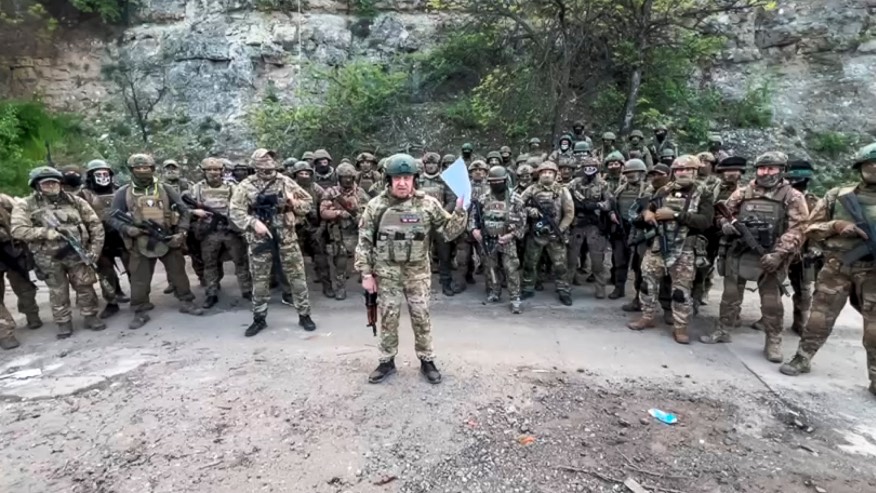
The Legacy of Yevgeny Prigozhin
Prigozhin’s death marked the end of an era for Wagner. Since then, Russia has absorbed the group into a Kremlin-controlled force, the Africa Corps, signalling tighter state oversight. Yet, his legacy endures, particularly in Africa, where his operations left an indelible mark on countries like CAR.
The unveiling of his statue in Bangui symbolises this dual legacy. For some, it is a tribute to a man who provided stability in a time of chaos. For others, it is a stark reminder of the costs of such stability—costs often borne by the most vulnerable.
A Monument to Power and Influence
The statue in CAR is not the first to honour Prigozhin. Similar monuments exist in Russia, near his grave in St. Petersburg and a cemetery in Krasnodar. These tributes reflect the complex narrative surrounding his life—a story of ambition, power, and violence.
As CAR continues to navigate its path forward, the shadow of Prigozhin and Wagner looms large. The statue in Bangui may be a symbol of bilateral ties, but it also serves as a poignant reminder of the blurred lines between liberation and exploitation in geopolitics.


